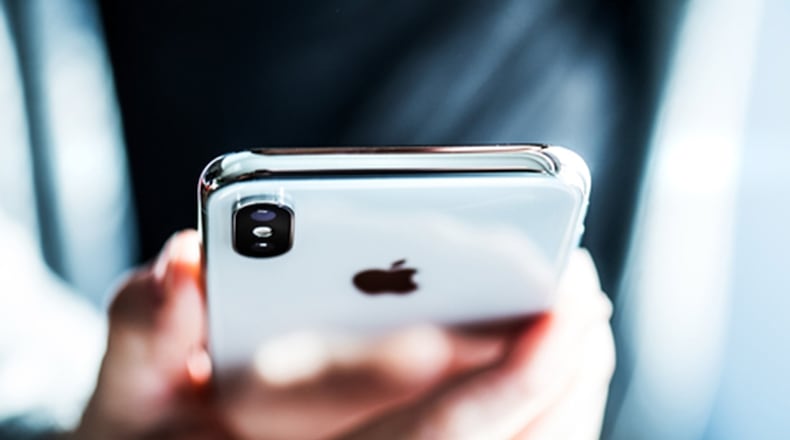A radio battle has been brewing, but it doesn’t involve the hottest DJ or shock jock.
Government agencies and consumer advocates in the radio industry are continuing to apply pressure on Apple to activate the FM chip in its iPhones. They say having access to millions of iPhone users is a public safety matter because radio broadcasts keep people informed in the event of local emergencies.
Apple, which commands more than 40 percent of the U.S. smartphone market, says its newer phones don't have the built-in chip or antennas to receive FM signals.
Industry officials, however, say there are plenty of older iPhone models in the market with chips that could be activated and that the public safety issue should trump any reluctance from the company.
Experts say radio, which commands 270 million listeners throughout the country each week, has the capacity to keep people informed in the event of local emergencies and natural disasters.
“You could make a case for activating chips on public safety grounds alone,” said Ajit Pai, the chairman of the Federal Communications Commission, in the aftermath of the hurricane season that ravaged the East Coast and several Caribbean islands. The FCC does not mandate phone makers to activate the chips.
Tim Clarke, vice president of audience and content for radio at Cox Media Group, says the company’s analysis of its markets affected by Hurricane Irma last year showed an increasing number of listeners tuned into local radio stations for weather updates. A lot of that information was relayed to smartphone users via FM channels.
“While technology is getting better, leaving critical life-saving information like that to wireless network delivery is not the best option when we know that the FM chip can do it more confidently,” said Clarke.
A spokesperson for Apple said the company’s phones provide vital information during emergenices through push alerts, Amber alerts and access to medical information.
“Apple cares deeply about the safety of our users, especially during times of crisis and that’s why we have engineered modern safety solutions into our products,” the company’s emailed response said.
Industry experts, however, argue the services provided over broadband cellular networks could prove unreliable during power outages, network congestion and severe weather conditions.
“Again, it’s over a wireless network and we all know how flaky that can be,” said Clarke, adding that the strong radio infrastructure proved reliable during last year’s hurricane season.
The latest push on Apple follows a decision in January by Samsung to unlock the FM chip on their devices. Samsung joined LG, Motorola and Alcatel, companies that have already allowed their users access to FM radio through the NextRadio app. The app utilizes a phone's FM chip to access local radio stations.
Dennis Wharton, the executive vice president of communications at the National Association of Broadcasters, hopes Apple will eventually follow suit.
“Apple portrays itself as cutting edge and consumer friendly, we think it just makes good business sense to have a public service ethic that allows people to access local radio stations,” adds Wharton.
About the Author
Keep Reading
The Latest
Featured



